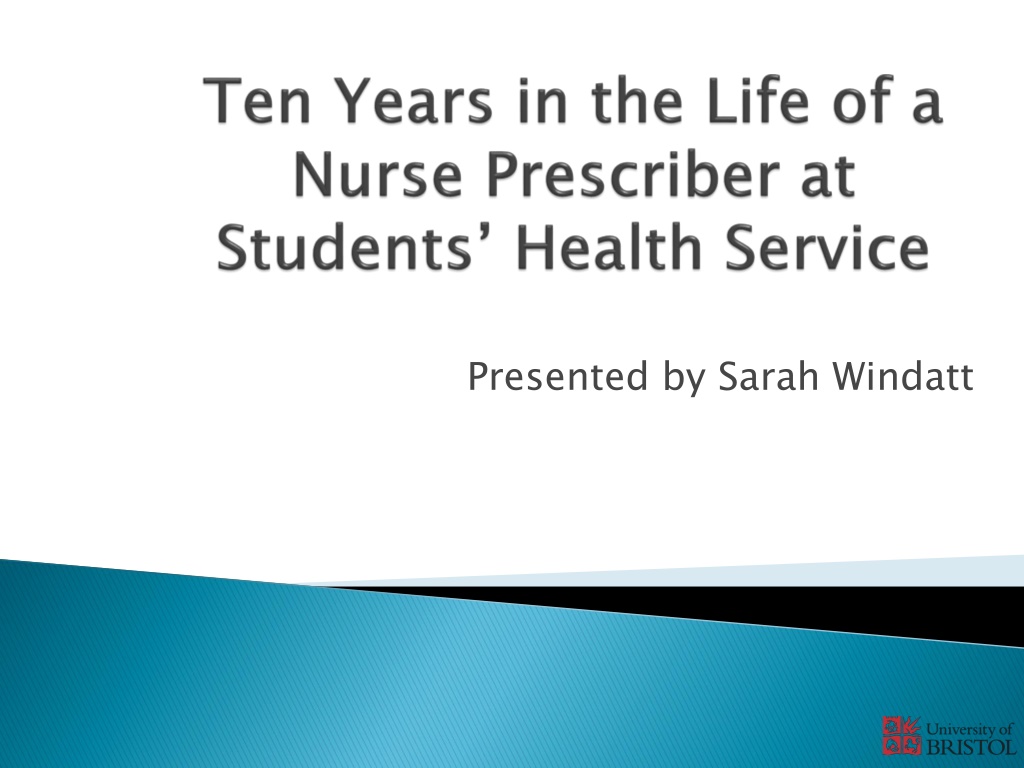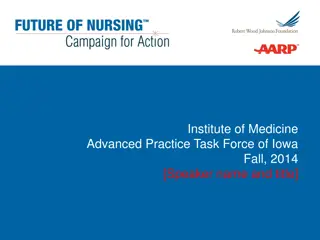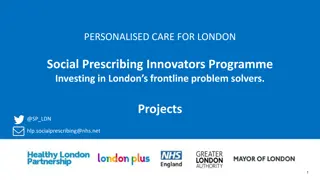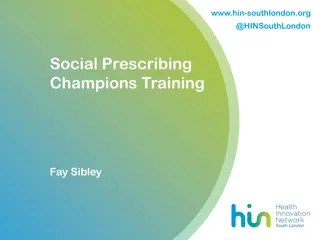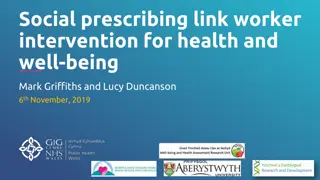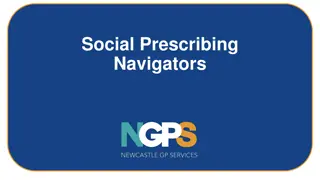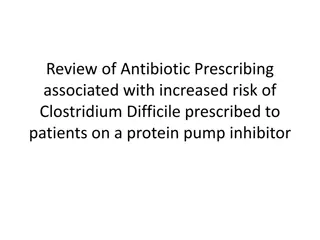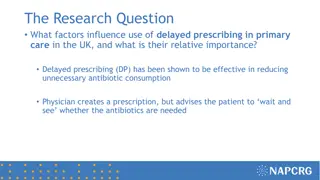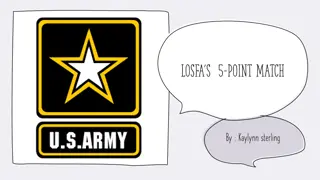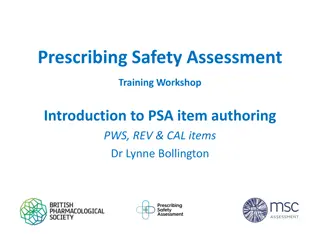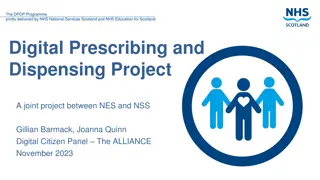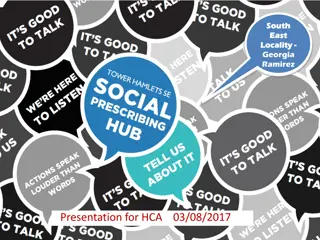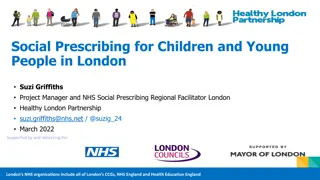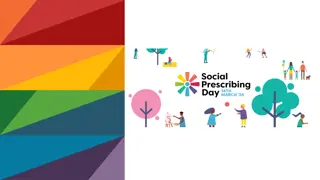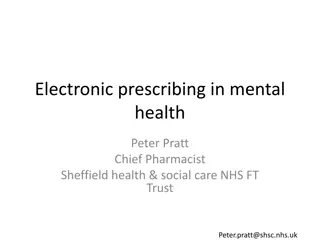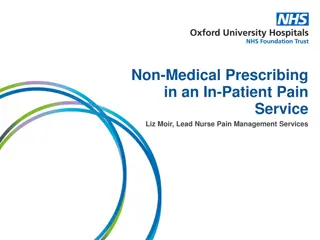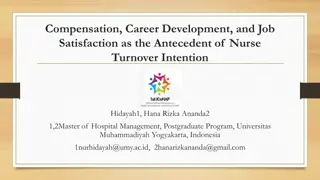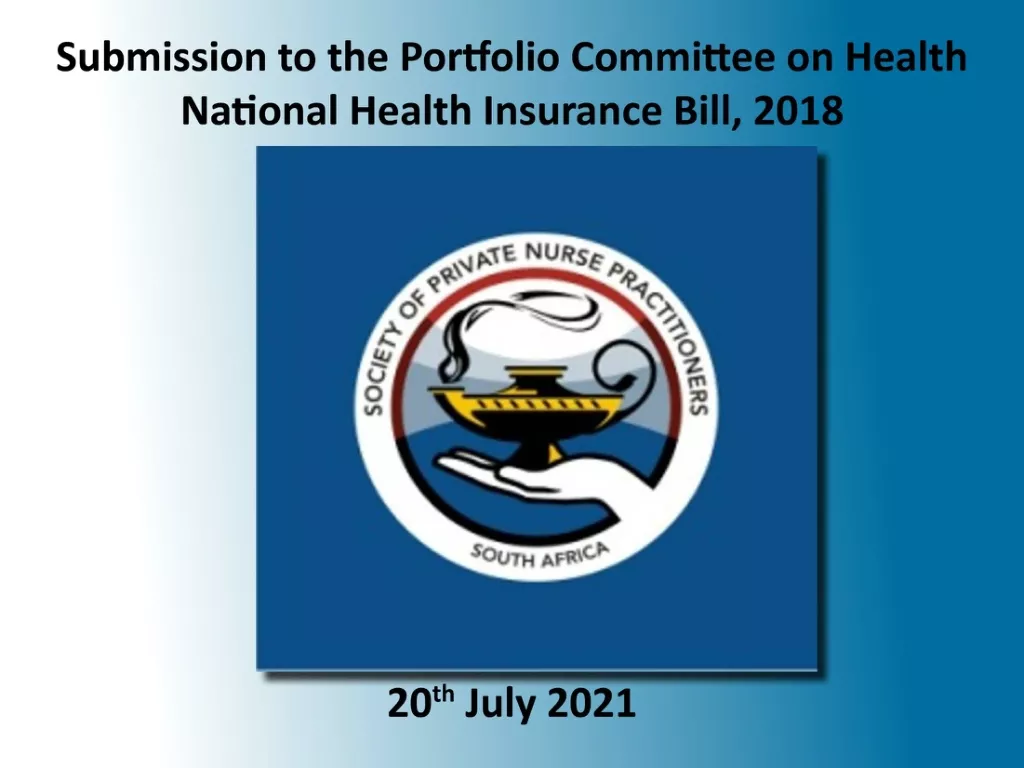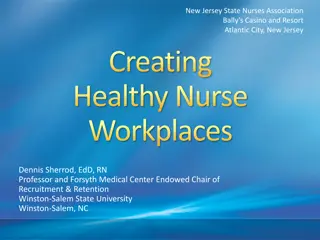Evolution of Nurse Prescribing: A Career Transformation
In 2004, Sarah Windatt became an Independent Nurse Prescriber, marking a significant shift in her career. Her journey from starting at a Students Health Service in 1996 to embracing new prescribing responsibilities reflects the evolution of nurse prescribing over the years. The narrative captures the challenges, milestones, and advancements in nurse prescribing, leading to expanded roles and capabilities for nurses in healthcare settings.
Download Presentation

Please find below an Image/Link to download the presentation.
The content on the website is provided AS IS for your information and personal use only. It may not be sold, licensed, or shared on other websites without obtaining consent from the author. Download presentation by click this link. If you encounter any issues during the download, it is possible that the publisher has removed the file from their server.
E N D
Presentation Transcript
In 2004 I became an Independent Nurse Prescriber. It changed my working life
Started at Students Health Service (SHS) in 1996 Came from CCU and no primary care experience Joined team of 1 full time and 1 part time nurses and 5 doctors Based in 2 Victorian houses knocked together over several floors
No PCs for the medical staff all notes taken on cards/ Lloyd George Very little nurse led care Doctors initiated travel immunisations and contraception No patient group directions (PGD s)
Mainly in house training for the nurses Many referrals to doctors from the nurses Nurses mainly gave advice or practical intervention eg taking swabs, giving immunisations, wound care Very little training for practice nurses available
1978 Royal College of Nursing (RCN) proposed nurses should have authority to prescribe dressings and topical treatments (Jones 1999) 1986 Cumberlege Report concluded district nurses (DN s) and health visitors (HV s) should be allowed limited prescribing rights
1989 First Crown report endorsed nurse prescribing and successful private members bill led to primary legislation (Medicinal Products; Prescription by Nurses etc Act 1992) 1998 First training course for Community Nurses with very limited formulary 1999- Second Crown Report Review of Prescribing, Supply and Administration of Medicines .
2003 Introduction of Supplementary and Extended Formulary Nurse Prescribing 2006 Nurses can prescribe for any medical condition within their competence including some controlled drugs 2012 Nurses allowed to prescribe schedule 2-5 controlled drugs therefore opening up entire BNF, providing they work within their competency (NMC 2010)
Approximately 19,000 independent nurse prescribers (RCN, 2012) Course offered at universities across the country > 3 years clinical practice required before allowed to take course Level 3 or Masters level Clinical supervision required during and after qualification
I qualified as an extended and supplementary nurse prescriber Trained at University of West of England Second cohort in Bristol to take the course
First nurse at SHS in Bristol to become a prescriber
Mentor was GP at SHS- supported me during and after the course At first limited formulary to manage a range of specified medical conditions in the following 4 areas: Minor illness Minor injuries Health Promotion and maintenance Palliative care
The formulary covered most of the conditions seen in our patient group but the choice of what to prescribe limited Never used supplementary prescribing Suddenly able to complete many more episodes of care
2006 BNF opened up to prescribe for any condition providing competent to do so
My competencies are increasing all the time All made possible by being able to prescribe There are now 3 independent nurse prescribers at SHS in Bristol And we are now in purpose built accommodation ..
Discuss the advantages of having Independent Nurse Prescribers on the nursing team ..
Specialist role working with students Often first time the patients have attended a healthcare setting without a parent Nurses in very good position to educate patients in self care, safe medicines management, expectations of what is available on the NHS
Patient centered Extends patient choice Improves access to services for patients Nurses generally have more time in appointments than doctors
Increased number of complete episodes of care Increased job satisfaction and flexibility Increased professional autonomy Increased value for money compared to doctors (NPC, 2010)
Prescriber appointments are always fully booked Mixture of same day and pre-booked appointments Same day appointments normally kept back for minor illness Duty dr telephone triage first hour of the day many of these patients end up on nurse prescriber lists
Minor illness Minor illness Prescribe for wide variety of ailments including tonsillitis, chest infections (with extra training), UTI, ear/eye infections Winter illness clinics perfect for a nurse prescriber very few referrals to duty dr/ DNA s
Wound care/ minor injury/ post Wound care/ minor injury/ post- -operative care operative care Prescribe for wound infections Act upon wound swab results Dressings for patients with long term wound care
Dermatology Dermatology Treatment of acne topical and oral treatment with regular reviews Fungal infections Bacterial infections Mild eczema / dermatitis
Contraception Prescribe all methods of contraception including combined and progestogen only pills, depo provera Prescribing of emergency hormonal contraception outside of PGD and Ulipristal (Ella One) Fit / remove implants (after training) - prescribe the implant and local anaesthetic Contraception
Sexual Health Sexual Health Full sexual health assessment including treatment of sexually transmitted infections (STI s) Treatment of contacts of STI Treatment of non-STI s eg thrush and bacterial vaginosis
Chronic Chronic D Disease Management isease Management Changes to medication e.g. inhalers, thyroxine Commencement of new medication Repeat prescriptions Nurse led service with appropriate referral when necessary
Travel Travel Fully nurse led service Extra training eg travel diploma, enables nurse to run specialist clinics Prescribe anti-malarials Set up PSD s for other nurses to give courses of vaccines
Non-medical prescribers are integral to the ongoing reform of the NHS and are at the start of both their extended role in service delivery and commissioning activity (Dr James Kingsland, NPC, 2010)
British National Formulary www.bnf.org Department of Health (April 1989) Report of the Advisory Group on Nurse Prescribing, DoH, London (First Crown Report) Department of Health ((March 1999) Review of Prescribing, Supply and Administration of Medicines DoH, London (Second Crown Report)
Department of Health and Social Security (1986) Neighbourhood Nursing: a Focus for Care DoH, London (Cumberlege report) Jones, M (1999) as cited by Cooper et al (2008) Non Medical Prescribing in the United Kingdom) Journal of Ambulatory Care Management 31(3),244-252 Kingslan Dr JP (2010) Foreword to NPC (2010) Non-medical prescribing. A Quick Guide for Commissioners
Nursing and Midwifery Council (2010) Standards for Medicines Management London www.nmc-uk.org Royal College of Nursing (2013) Nurse Prescribing Update RCN Publishing, London
